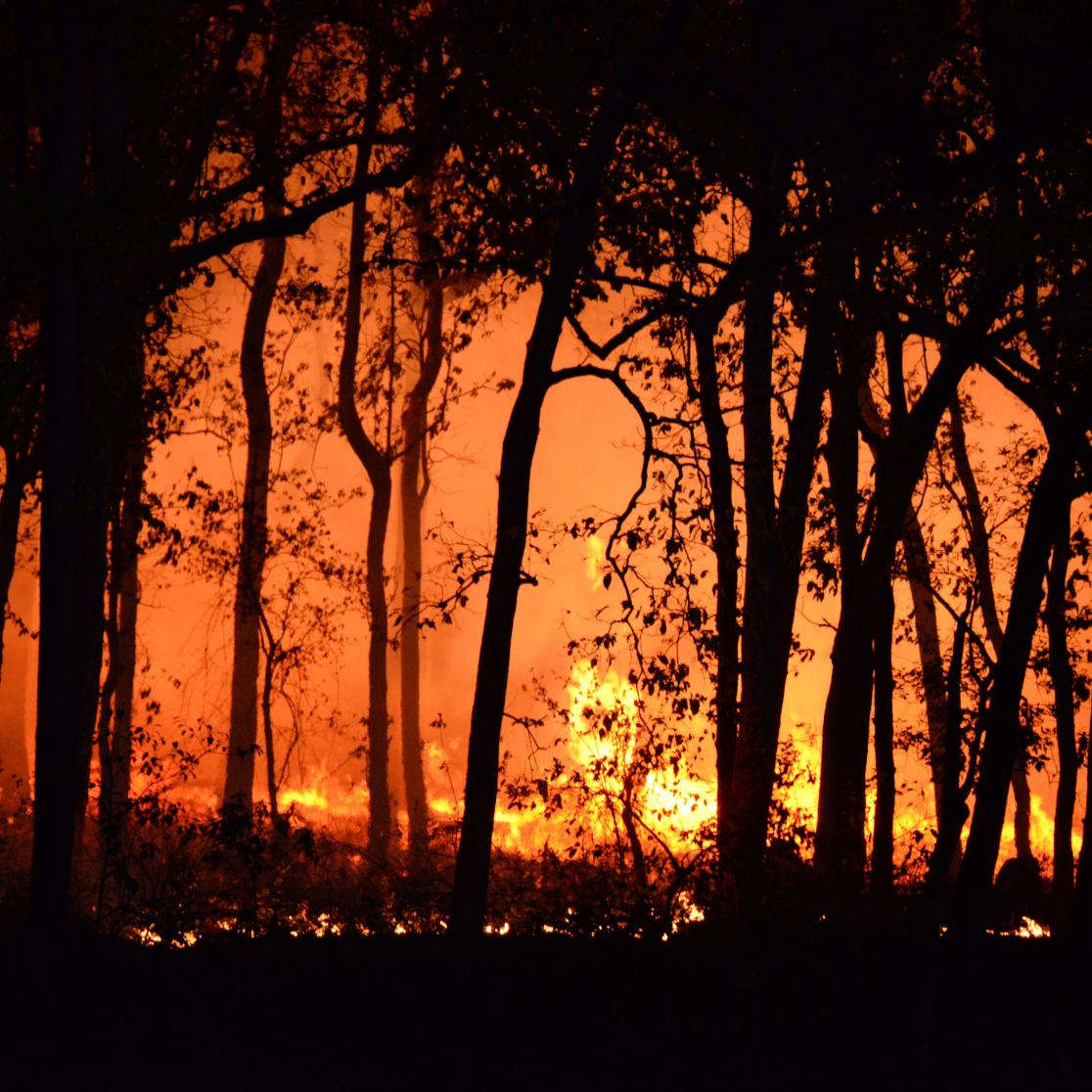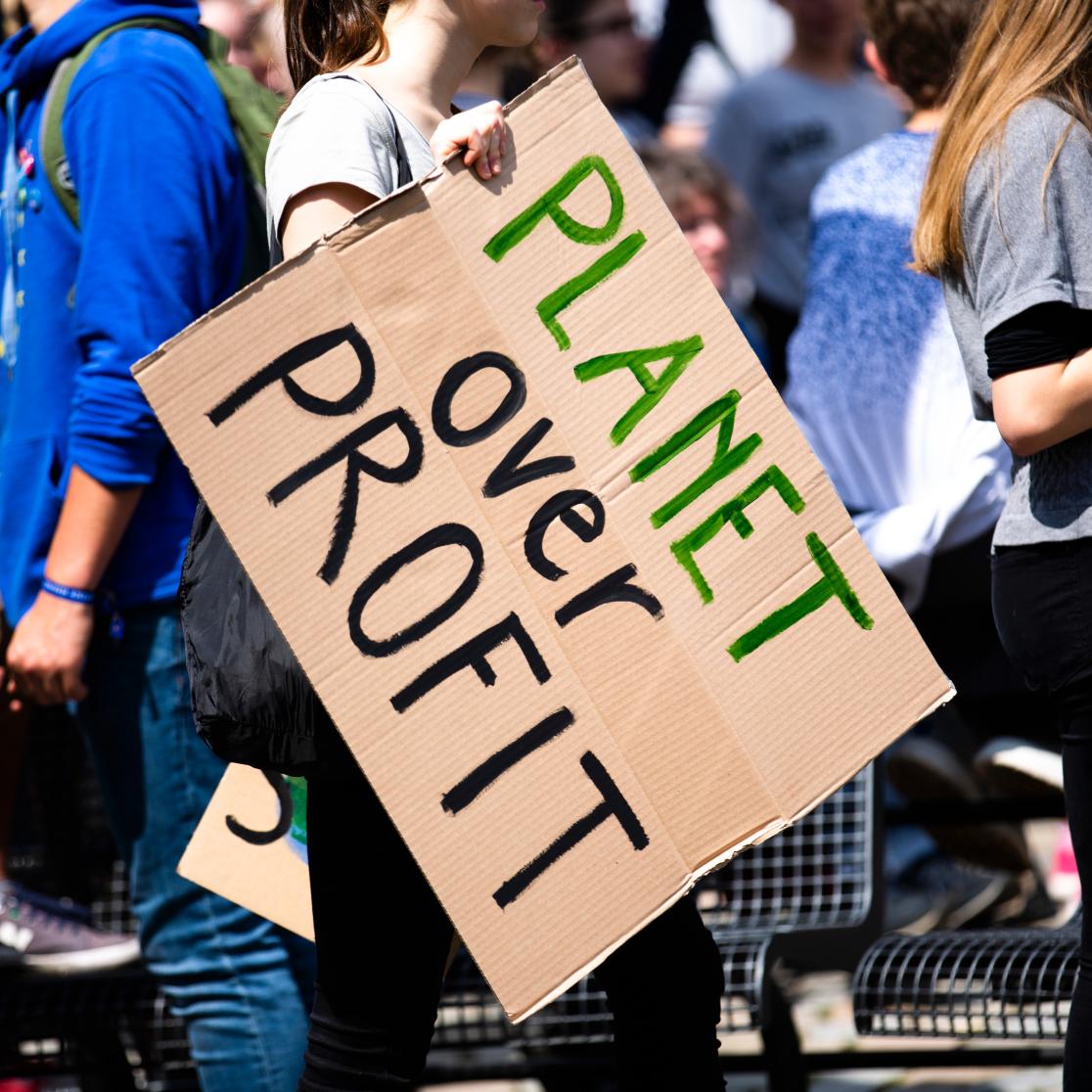Earth’s hottest month ever! What now?
‘Earth’s hottest month ever’ is a clear warning that we as humanity should not overshoot planetary boundaries. We must act now, and we should do it together.
“July 2023 was Earth’s hottest month on record […] and this all-time record-breaking heat followed the hottest June ever recorded for the planet. More than 6.5 billion people – 81% of the global population – experienced climate change-attributed heat in July 2023” (Climate Central, 2023). “From Africa to Antarctica, all seven of Earth’s continents have experienced extraordinary extreme weather events this month” (CarbonBrief, 2023), such as heat waves, droughts, wildfires, floods, hailstorms, and landslides.
“The era of global warming has ended” and “the era of global boiling has arrived”, said UN Secretary-General António Guterres on July 27th at the UN Headquarters, warning that the effects of climate change are dramatic: “Children swept away by monsoon rains, families running from the flames, and workers collapsing in scorching heat”. Although climate change is evident, “we can still stop the worst,” he said. “But to do so we must turn a year of burning heat into a year of burning ambition” (UN News).
Global warming, global heating, global boiling. Whatever we call it, climate change is a fact, and we humans are responsible for it. However, those who have made the greatest contribution to climate change – and still doing so by emitting large quantities of greenhouse gases – are not facing the most adverse effects of global warming. “Vulnerable communities who have historically contributed the least to current climate change are disproportionately affected” (IPCC, 2023).
Therefore, climate action is an issue of justice that plays out across world regions (Global North versus Global South), between socio-economic classes in countries (rich versus poor), and generations (young versus old, current versus next generations).

Paris Agreement
To tackle climate change, the UN 2015 Paris Agreement – a legally binding international treaty – aims to limit global warming to well below 2°C above pre-industrial levels, with an aspiration to limit it to 1.5°C. “However, in recent years, world leaders have stressed the need to limit global warming to 1.5°C by the end of this century […] because the IPCC indicates that crossing the 1.5°C threshold risks unleashing far more severe climate change impacts” (UN Climate Change).
To achieve the 1.5°C goal, global greenhouse gas emissions must peak before 2025 and decline 43% by 2030 (UN Climate Change). WRI Insights (2022) notes that globally, greenhouse gas emissions have increased by 53% from 1990 to 2020. However, in the EU, greenhouse gas emissions decreased by 32% in the same period, which is remarkably higher than the EU’s 2020 reduction target of 20% (EPA, 2022).
The world is facing a huge challenge, because drastically reducing greenhouse gas emissions requires a complete transformation of energy systems, economies, and lifestyles. A societal change that might be possible, but the IPCC warns clearly in their latest report for policymakers: “There is a rapidly closing window of opportunity to secure a liveable and sustainable future for all […] enabled by increased international cooperation” (IPCC, 2023). In other words, urgent and concerted action is required, and we need it now.
Coordinated action
Climate policy is complex and controversial because reducing and ultimately preventing greenhouse gas emissions will have far-reaching consequences for our daily lives, especially in rich and industrialised countries. However, there is simply no alternative if we want to prevent dangerous global warming that will affect virtually everyone on the planet. There is no other way out.
Climate action requires coordinated action, in other words, ‘governance’. Governance refers to collective action through which issues of common concern are decided upon and regulated. Governance theory (see for example Stoker, 1998; Meadowcroft, 2010; Biermann, 2014) distinguishes three social domains: the state, the market and civil society. The state or government serves the public interest; the market or business focuses on private interests; and civil society or citizens and social organisations shape public opinion and represent personal privacy. In a well-functioning society, the three domains are firmly established, complement each other in terms of roles and responsibilities, and keep power in balance.
Climate governance can therefore be understood as a multi-actor approach for steering and managing society in the pursuit of climate mitigation (reducing and preventing greenhouse gas emissions) and climate adaptation (learning to live with the impacts of a changing climate). However, in many countries, a governance approach does not work. The social domains may be poorly organised, for example, in the case of a weak or corrupt government or in the absence of social organisations that can be a voice for civil society. Collaboration between the domains can also be problematic. For example, when companies announce that they will move their operations abroad if stricter climate policy is implemented, or protests by citizens if taxes on fuel and energy are raised. At the international level, the governance challenges become even greater and more complex. Here we are dealing with sovereign states, global markets, complex supply chains, multinationals, et cetera.
What is going on?
Climate change is a global problem that requires international cooperation and action by governments, companies, civil society organisations, and individuals. There are hopeful signs, such as the EU’s ambition to be climate-neutral by 2050, which means an economy with net-zero greenhouse gas emissions (EC). However, there are also governments that do not take climate change very seriously, want to monetise their large fossil fuel reserves, and see forests mainly as an obstacle to development (instead of a major carbon sink). One can wonder if such government serves the public interest. Moreover, the idea that ‘we need economic growth first, before we can protect nature and the environment’ is widespread and persistent in policy and economy – which can be a valid argument in poor countries, but is questionable in affluent economies.
In the business community, the climate crisis goes hand in hand with opportunities and uncertainty. There are sectors that have made climate their business model, such as wind and solar farms, the full electrification of consumer goods, and the provision of climate-neutral products. However, there are also many companies that do not know how to become climate-friendly, expect that climate policy will not go that fast, or wait for a level playing field before taking action. Many CEOs of large companies are aware of the climate crisis, but also have to deal with other pressing issues such as exploring new markets, securing supply chains, investing in new technologies, and keeping shareholders satisfied. Corporate climate policy is not always a top priority then.
Civil society is very diverse, with many different interests and various views on climate change. Citizens are increasingly experiencing the negative impacts of climate change and call for action. There are all kinds of social movements, protests and (school) strikes, which aim to influence governments and companies to change course towards a climate-friendly society. However, it is also clear that many citizens find it difficult or even impossible to contribute to climate policy. In daily life, it is not easy to reduce greenhouse gas emissions if sustainable alternatives are not available, too expensive, or take too much time and effort. A ‘green’ lifestyle cannot be achieved overnight. In that respect, calculating one’s own carbon footprint can be informative (see for example ClimateHero Carbon Calculator).

What is needed?
Climate governance is complex and faces many uncertainties, but that is no reason not to act. There is too much at stake with global warming. To improve our climate efforts, the following is needed:
- Leadership: we need leaders in politics, policy, business and other institutions such as media, sports, religion and universities who can motivate others for climate action. A consistent long-term vision is needed here to work step-by-step on the transformation to a climate-friendly society. Leaders who look beyond the mostly short-term interests of voters and shareholders put the public interest of climate change first.
- Collaboration: we need to replace the dominant competition model in international relations, politics, business, science, media, et cetera, with genuine collaboration. Global problems such as climate change cannot be solved individually. All distributed resources such as knowledge, rules and regulations, technology, finances, organisation, et cetera need to be pooled for collective action, and where parties and individuals contribute to their ability. Teamwork is needed.
- Information: we need information that is reliable, balanced and actionable. Science and media play an important role in the development and distribution of climate-related information. Science is often reserved in sharing knowledge if the evidence is not yet complete. Media is often more interested in spectacle and negative events than in positive news. For climate action, information is needed that is reliable (science-based), balanced (nuanced media communication) and above all actionable (that is relevant to the everyday life of groups and individuals).
- Modesty: we need modesty in our attitude and relationship towards nature and other people. A cultural shift in norms and values is necessary to rethink our economic system – which should respect the environment and serve society – and strive for an alternative approach such as the ‘Doghnout economics’, a framework developed by economist Kate Raworth that combines social foundations (life’s essentials) and ecological ceilings (planetary boundaries). Climate change is, of course, one of the nine planetary boundaries.
‘Earth’s hottest month ever’, a clear warning that we must act now, and we should do it together.
Bibliography
Biermann, F. (2014). Earth System Governance. World Politics in the Anthropocene. The MIT Press. http://mitpress.mit.edu/9780262526692
CarbonBrief – Clear on Carbon. (2023, 18 July). Media reaction: Extreme weather hits world’s seven continents in July 2023. Retrieved from https://www.carbonbrief.org/media-reaction-extreme-weather-hits-worlds-seven-continents-in-july-2023/
Climate Central. (2023, 1 August). Worldwide daily fingerprints of climate change during Earth’s hottest month. Retrieved from https://assets.ctfassets.net/cxgxgstp8r5d/5UgotICc4r88cRRDfnG3yZ/1725791ff462c4efe65056eedfd2ec5a/Climate_Central_Global_Attribution_Report_July_2023.pdf
ClimateHero Carbon Calculator. https://ecological-footprint-calculator.climatehero.me/
EC (European Commission) Climate Action. 2050 long-term strategy. Retrieved from https://climate.ec.europa.eu/eu-action/climate-strategies-targets/2050-long-term-strategy_en#:~:text=The%20EU%20aims%20to%20be,AgreementEN%E2%80%A2%E2%80%A2%E2%80%A2.
EPA (European Environment Agency). (2022, 26 October). Total greenhouse gas emission trends and projections in Europe (8th EAP). Retrieved from https://www.eea.europa.eu/ims/total-greenhouse-gas-emission-trends
IPCC (Intergovernmental Panel on Climate Change). (2023). Summary for Policymakers. In: Climate Change 2023: Synthesis Report. Contribution of Working Groups I, II and III to the Sixth Assessment Report of the IPCC, Geneva, Switzerland. Retrieved from https://www.ipcc.ch/report/ar6/syr/downloads/report/IPCC_AR6_SYR_SPM.pdf
Meadowcroft, J. (2010). Who is in Charge here? Governance for Sustainable Development in a Complex World. Journal of Environmental Policy & Planning, Volume 9, Issue 3-4 https://doi.org/10.1080/15239080701631544
Stoker, G. (1998). Governance as theory: five propositions. International Social Science Journal, Volume 50, Issue 155. https://doi.org/10.1111/1468-2451.00106
UN (United Nations) Climate Change. The Paris Agreement. What is the Paris Agreement? Retrieved from https://unfccc.int/process-and-meetings/the-paris-agreement
UN (United Nations) News. (2023, 27 July), Hottest July ever signals ‘era of global boiling has arrived’ says UN chief. UN News – Global perspective Human stories. Retrieved from https://news.un.org/en/story/2023/07/1139162
WRI (World Resource Institute) Insights. (2022). 4 Charts Explain Greenhouse Gas Emissions by Countries and Sectors. Retrieved from https://www.wri.org/insights/4-charts-explain-greenhouse-gas-emissions-countries-and-sectors
Also read
-
Jolijn: “During the day I study medicine. In the evening, I am on stage singing and dancing”
During the opening of the academic year, Jolijn van Vugt was singing and dancing on stage at Theater aan het Vrijthof. As a performer, to be precise. The 21-year-old medical student manages to combine her studies with singing and dancing at an advanced level. She dances at the Oxygen dance school in...

-
Globalisation & Law Network seminar with Damian Chalmers
On 4 November 2025, the Globalisation & Law Network had the honour of welcoming Prof. Damian Chalmers to discuss his paper “The EU’s Governing by Legal Shadows”.

-
Moles in your living room: using augmented reality in neurorehabilitation
How can you use digital moles to help patients with Parkinson's? Melvyn Roerdink explains.
